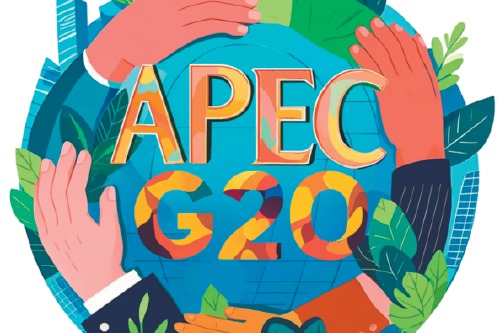



The recent discussions surrounding the APEC summit and the G20 have raised questions about their relevance in the current geopolitical climate. APEC, established in 1989, and G20, founded in 1999, aim to facilitate trade and promote sustainable growth and regional economic integration. However, both organizations have faced challenges, particularly evident in 2018 when APEC could not agree on a joint statement due to escalating US-China tensions [9bd866fe]. The ongoing rivalry between the US and China has led to a perception that both APEC and G20 are struggling to adapt to the changing global landscape. The US has blocked the appointment of judges to the WTO Appellate Body, stalling trade dispute resolutions and further complicating international trade dynamics [9bd866fe].
In light of recent economic uncertainties, including the aftermath of the 2008 financial crisis and the disruptions caused by the COVID-19 pandemic, the need for collaboration between the Global North and South has become increasingly urgent. The Ukraine crisis in 2022 and the Middle East crisis in 2023 have further strained global supply chains, highlighting the necessity for effective governance in international organizations [fde4d504]. China and Turkiye have emerged as advocates for leadership from the Global South, emphasizing the importance of inclusive dialogue in addressing global challenges [fde4d504].
The recent APEC summit in San Francisco highlighted efforts to stabilize US-China relations, with President Biden and President Xi Jinping engaging in discussions aimed at reducing tensions and fostering cooperation on global challenges [ee10f9aa]. While the summit showcased some achievements, such as restoring law enforcement cooperation and initiating dialogues on artificial intelligence, it also underscored the deep mutual distrust that persists between the two nations [ee10f9aa].
The G20 summit in Brazil focused on critical issues such as preventing hunger and poverty, reflecting a growing recognition of the need for reform in international organizations to ensure effective governance [fde4d504]. As the world grapples with complex issues like climate change, economic inequality, and geopolitical rivalries, the role of APEC and G20 as platforms for collaboration becomes increasingly significant. The need for direct discourse between major powers is essential to navigate these challenges effectively [42ce5ca9]. Thus, while criticisms of their effectiveness persist, APEC and G20 continue to serve as critical venues for international dialogue and cooperation in a rapidly changing world.